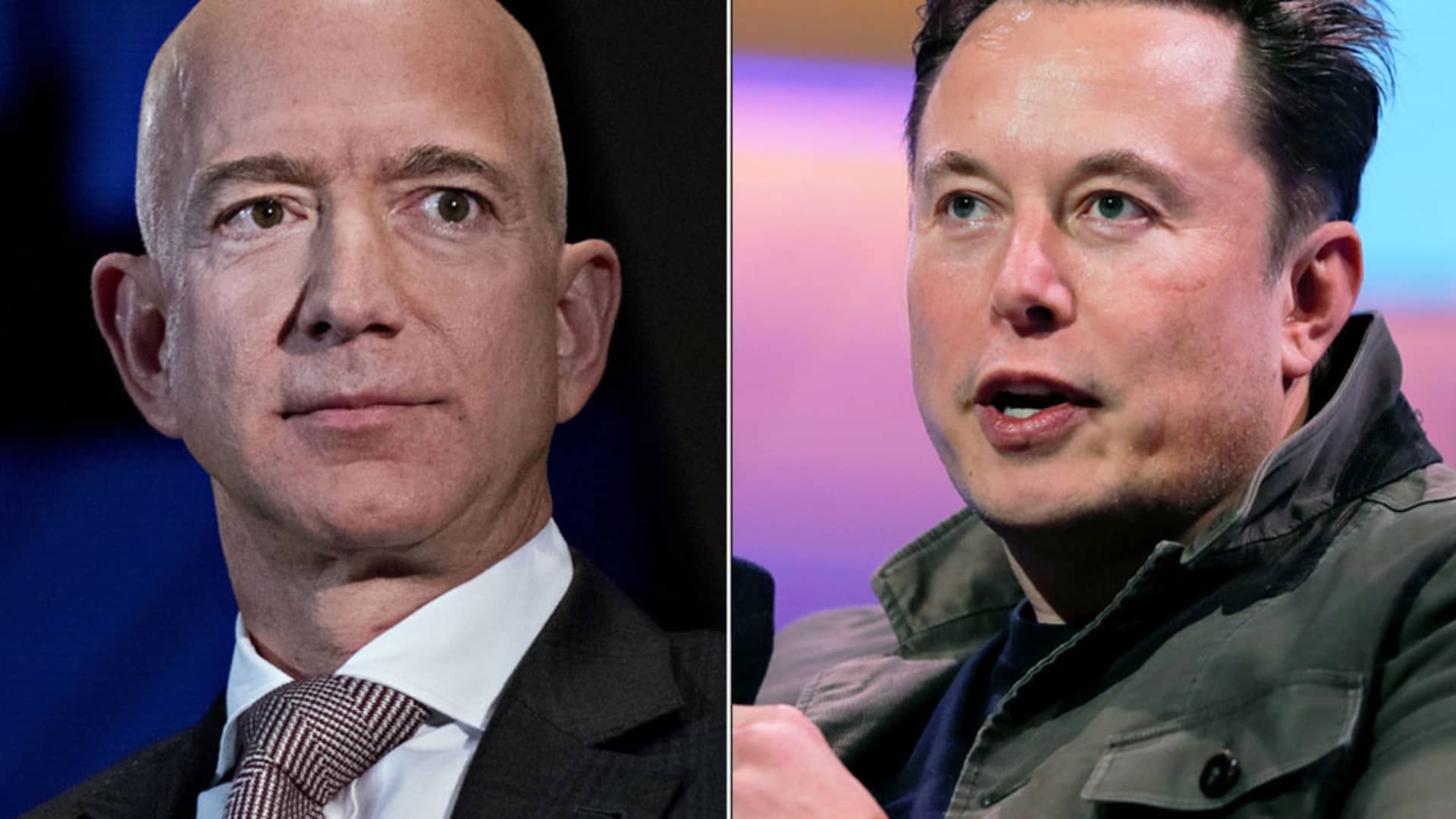WASHINGTON – Jeff Bezos has his NASA moon ticket.
The billionaire’s space company Blue Origin won a key contract from the National Aeronautics and Space Administration on Friday to develop a crewed lunar lander for delivering astronauts to the moon’s surface later this decade under the agency’s Artemis program.
The Blue Origin-led team – which includes Lockheed Martin, Boeing, Draper, Astrobotic and Honeybee Robotics – topped the proposal of a team led by Leidos-owned Dynetics. Other proposals were expected, but likely won’t be revealed until NASA releases documents explaining its selection process.
Known as the Sustaining Lunar Development (SLD) program, the competition was effectively a second-chance contest that NASA organized after Elon Musk’s SpaceX was the sole winner of the first crew lander contract in 2021.
That first program, called the Human Landing System (HLS), gave SpaceX a near $3 billion contract to develop a variation of its Starship rocket for Artemis missions. Prior to the HLS award, NASA was expected to choose two winners, but the agency’s budget at the time and SpaceX’s more-affordable bid resulted in there being a single winner.
Both HLS and SLD are part of NASA’s Artemis program to land astronauts on the moon, with the agency hoping to start flying crews to the lunar surface within the next few years. In December, NASA completed the first Artemis mission, which had no people on board, flying its Space Launch System (SLS) rocket and Orion spacecraft around the moon for the first time.
A messy saga
SpaceX’s outright win for the HLS contract led to intense federal protests by Blue Origin. Bezos’ company first decryied the award as “flawed” in a challenge through the Government Accountability Office and then ultimately sued NASA in court after the GAO denied the company’s protest.
The lawsuit led to sparring between the billionaires, with Blue Origin calling SpaceX’s Starship an “immensely complex & high risk” approach, referring to criticism made by NASA officials in evaluating the company’s HLS bid.
A month before the lawsuit, Bezos personally offered to cover $2 billion in NASA costs over two years in exchange for a lunar lander contract. NASA did not publicly respond to the offer, even after Bezos sweetened the proposal during discussions in court to cover “over $3 billion” with private funding.
As the trial played out, Musk got involved and declared “you cannot sue your way to the moon, no matter how good your lawyers are.”
The Blue Origin lawsuit held up work on the HLS contract for much of 2021, before the U.S. Court of Federal Claims ruled in NASA’s favor, clearing the agency and its officials’ decisions of wrongdoing.
Competition with Starship
Last year, NASA Administrator Bill Nelson explained the reasoning behind a second bidding process to add another privately-built lunar lander, saying, “competition is critical to our success.”
“We can leverage that money by working with a commercial industry and, through competition, bring those costs down to NASA,” Nelson said during Senate testimony in 2022.
SpaceX has continued to develop its nearly 400-foot-tall Starship rocket in the meantime. The company in April attempted to reach space with the vehicle for the first time. Recently, Musk estimated that SpaceX will spend about $2 billion on Starship development this year, and expects the company to reach orbit around the Earth with its next launch.
Last year, NASA gave SpaceX with an additional $1.15 billion award under the HLS contract, exercising an option to buy a second crewed demonstration landing from the company. That brought the total value of SpaceX’s HLS contract up to $4.2 billion through 2027.
To date, NASA has paid out about $1.8 billion to SpaceX under HLS, according to federal records.
